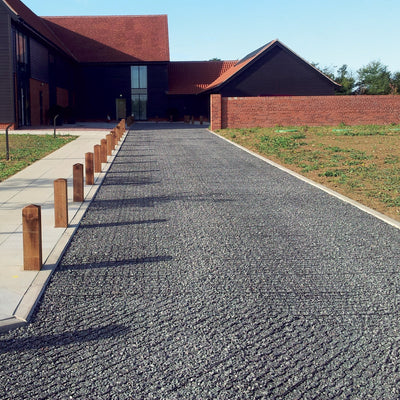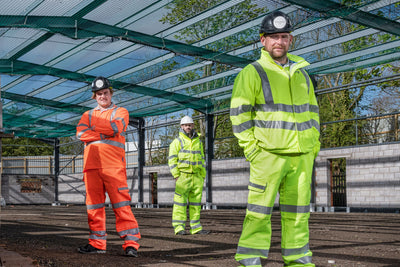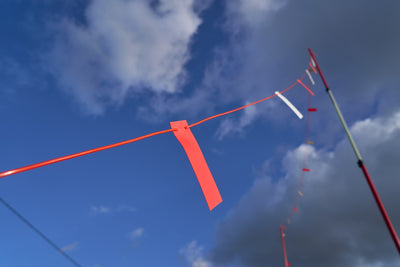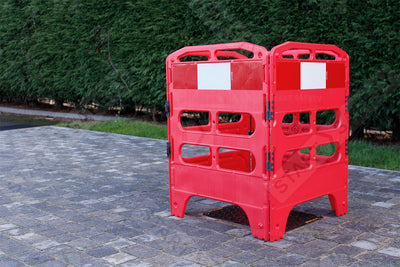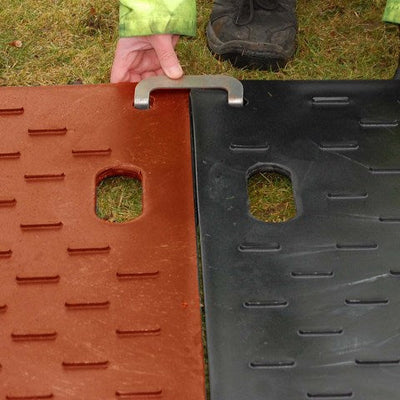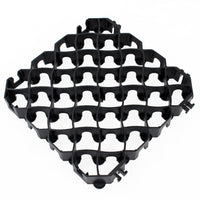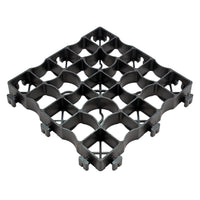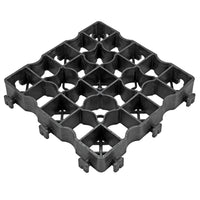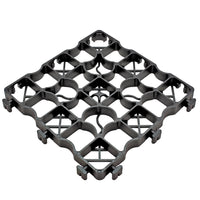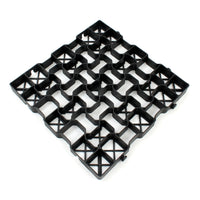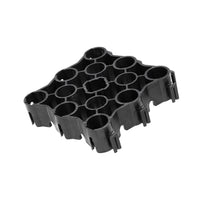Concrete vs Gravel Driveways - Which Is Best?
When scoping out options for your driveway or any area of hard standing, it is easy to fall into the trap of thinking concrete is king. With modern options like printed concrete it's easy to see why it is so popular, but is it really the best choice? And how does it compare to a cheaper solution like a gravel driveway?
In this article, we examine the pros and cons of both systems, and also explore a modern alternative that is turning traditional gravel driveways on their head.
Concrete driveways, tried, tested, but far from perfect
Concrete driveways and yards have been around for what seems like forever, and for good reason. There are some applications where it simply cannot be beaten. It is relatively quick to install, and once cured, it offers a smooth flat surface that will last for many years. This raises the question: what are the pros and cons?
Pros of concrete for driveways:
- Provides a hard, smooth surface - ideal for jacking vehicles up on, rollerskating, playing basketball and of course parking on.
- Low Maintenance - requires very little in the way of maintenance.
- Hard-wearing - typically, a concrete driveway will last in excess of 50 years, so long as it is maintained properly.
Cons of concrete for driveways:

- Natural Staining - Algae, tree sap and other contaminants can quickly darken and stain the surface of the concrete, making it look dark and patchy. This can be removed by pressure washing with specialist detergents.

- Permanent Staining - Oil leaks from vehicles can leave permanent stains that are very hard to remove from concrete.

- Cracking - Over time, with settlement slabs of concrete can crack, while this will not impact the immediate functionality of the drive, it will give a foothold for weeds to get started, increasing the long-term maintenance. They can also look a little unsightly.
- Cost - The installation costs and carbon footprint of a concrete driveway can be significantly higher than a gravel driveway alternative. Concrete contributed 8% of global carbon dioxide emissions in 2021, with gravel only being about 0.17-1.8%. (source Science Direct - concrete, gravel)
- Water Runoff & Flooding - Concrete does not allow water to pass through, which causes issues with water runoff freely. This is not so much of an issue when it is a one-off install in the middle of a large area of grass, but once large areas are concreted or multiple driveways are relatively close to each other, rainwater runoff can quickly compound and cause significant localised flooding.
Traditional Gravel Driveways
The traditional composition of a gravel driveway is a loose foundation of compacted gravel, covered by a weed membrane with further gravel placed on top. As you can imagine, this makes them very cheap to install when compared to a concrete driveway, but what are the pros and cons?
Pros of Traditional Gravel Driveways:
- Cost - Installation is very cheap, with the largest costs likely being labour. Gravel itself can be picked up for between £63.00 and £100 per bulk bag, depending on the type and size of chipping.
- Noise - Gravel driveways can act almost like a burglar alarm; they crunch underfoot, acting as an early warning system for anyone approaching your home.
- Drainage - If fitted with a permeable membrane, they drain freely, significantly cutting down on localised flooding, especially if a large area has been converted into a driveway.
- Aesthetics - Gravel for driveways comes in a range of colours and even shapes, allowing you to fine-tune the appearance of the installation to suit your property.
Cons of Traditional Gravel Driveway:
- Maintenance - Gravel driveways can require more maintenance than concrete driveways. This can range from weed control to redistributing the gravel as it naturally moves around.
- Rutting - When vehicles or foot traffic frequently pass over the same point, you can end up with the gravel naturally trying to get out of the way, leaving you with low spots and high spots, otherwise known as rutting. This can look unsightly and also leave bald spots where the gravel has completely gone unless tended to.
- Noise - I know we said this was a pro, but if you have a particularly sensitive neighbour, you may also think of this as a con.
So, which driveway is best? Concrete, traditional gravel, or is there something better?
With both concrete driveways and gravel driveways being so established in their use, it is no surprise that there have been some advancements in both areas. With concrete driveways, there have been advancements allowing for “printed” concrete driveways that have patterns on them, as well as specialist coatings that can help hold back staining.
The real standout change, though, is the development of new gravel driveway technologies, allowing them to do away with 99% of their downsides and even take heavier loads than concrete in some circumstances, all while maintaining drainage. This development is the gridded gravel driveway.
The Rise of The Gravel Grid Driveway
The last 10 years have seen a boom in the space of cost-effective and high-performance plastic gravel pavers, which can be used in a variety of landscaping roles. Where they have hit their stride though, is in domestic and commercial parking and driveways.
These modern systems take the traditional gravel driveway installation and add a gridded tile. These improvements enhance the performance of the gravel driveway in multiple ways, all while remaining significantly less expensive than a concrete driveway.
The Pros of a Gravel Grid Driveway:
- Cost - Although costing slightly more than a traditional gravel driveway, a gridded driveway solution remains very affordable compared to other options, such as block pavers, concrete, and tarmac. The grid, depending on the “duty” (weight-bearing capacity), can cost from as little as a couple of pounds.

- Stability - All issues with rutting are eliminated, as each cell within a tile retains gravel, preventing bald spots, lows, and highs, and reducing maintenance.
- Maintenance - All maintenance is significantly reduced, as fewer stone “top ups” will be required due to the grids holding onto their gravel and preventing migration within the area or even to external areas.
- Drainage - All the perks and drainage are kept from a traditional gravel driveway, and in some instances are improved upon, as the grids can help prevent compaction, ensuring water can freely drain away.
- Noise - Your driveway can still act as an early warning system for visitors (wanted or unwanted).
- Sloped Ground - You can now have a gravel driveway on a sloped surface without all your gravel sliding off to one end.
- Improved Traction - Most grids have traction-enhancing nodules on the top surface, allowing foot traffic and tyres to grip with greater ease.
- Weight bearing - The correctly specified grid can help a gravel driveway cope with everything from motorbikes to HGVs and forklifts.
- No Stains - The nature of gravel in these driveway systems means that any stains are washed away, or contaminated gravel can be switched out.
Cons of a Gravel Driveway Grid
- Weed Control - Although far easier to look after than block paving, weeds will occasionally need removing from your gravel driveway. This is generally very easy due to the loosely packed gravel, provided you don't let them get too established.
- Noise-sensitive neighbours will still hear the crunch of gravel.
Get the best Gravel Driveway Pavers
As you can tell, properly installed gravel driveway pavers have dragged the traditional gravel driveway into the modern era, giving a durable surface that will last more than 25 years with little more than a bit of weeding here and there.
These pavers come in a range of sizes, styles, and weight-bearing capacities. If you need help finding the best fit for your project, give us a call on 01905 794 875 or use the contact form to get in touch. Our experienced team will help you get the best value for money and the best results for your project.
- Author
